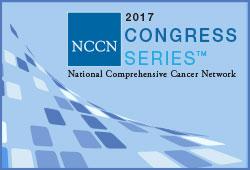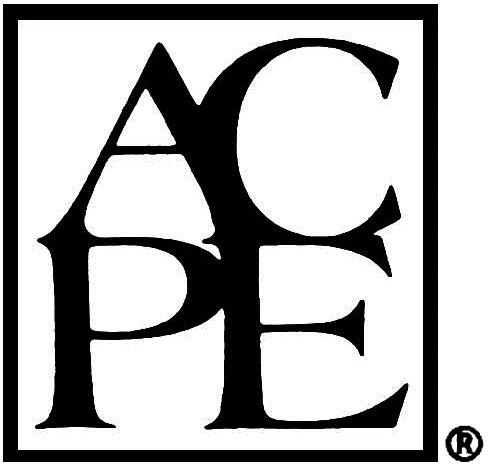
Recorded Presentation from the NCCN 2017 Congress Webinar Series™: Lung Cancer - New Strategies to Improve the Accuracy of Lung Cancer Screening
The goal of this educational program is to ensure that members of a multidisciplinary team, including physicians, nurses, pharmacists, and other relevant healthcare professionals, have the knowledge and skills necessary to apply the standards of care to their practices and healthcare settings for patients with lung cancer and those being screened for lung cancer.
Target Audience
This educational program is designed to meet the educational needs of oncologists, pathologists, nurses, pharmacists, and other health care professionals who manage patients with lung cancer and those being screened for lung cancer.
Learning Objectives
Following this activity, participants should be able to:
- Discuss the risk assessment process used to determine whether patients are candidates for lung cancer screening.
- Evaluate and follow-up the findings of different types of nodules that may be detected on low-dose computed tomography.
- Identify when to recommend further screening, biopsy, surgical excision of nodules based on recommendations in the NCCN Guidelines® for Lung Cancer Screening.
- Appropriately counsel patients about the risks and benefits of lung cancer screening.
Ella A. Kazerooni, MD, MS
University of Michigan Comprehensive Cancer Center
Douglas E. Wood, MD
Fred Hutchinson Cancer Research Center/Seattle Cancer Care Alliance
Disclosure of Relevant Financial Relationships
All faculty and activity planners participating in NCCN continuing education activities are expected to disclose any relevant financial relationships with a commercial interest as defined by the ACCME’s, ANCC’s, and ACPE’s Standards for Commercial Support. All faculty presentations have been reviewed for adherence to the ACCME’s Criterion 7: The provider develops activities/educational interventions independent of commercial interests (SCS 1, 2, and 6) by experts on the topics. Full disclosure of faculty relationships will be made prior to the activity.
Definitions
The ACCME/ANCC/ACPE defines “conflict of interest” as when an individual has an opportunity to affect CE content about products or services of a commercial interest with which he/she has a financial relationship.
ACCME, ACPE, and ANCC focuses on financial relationships with commercial interests in the 12-month period preceding the time that the individual is being asked to assume a role controlling content of the CE activity. ACCME, ACPE, and ANCC have not set a minimal dollar amount for relationships to be significant. Inherent in any amount is the incentive to maintain or increase the value of the relationship. The ACCME, ACPE, and ANCC defines “relevant’ financial relationships” as financial relationships in any amount occurring within the past 12 months that create a conflict of interest.
Faculty Disclosures
The faculty listed below disclose no relevant financial relationships:
Ella A. Kazerooni, MD, MS
Douglas E. Wood, MD
The NCCN Activity Planning staff listed below disclose no relevant financial relationships:
Kim Bayer; Mark Geisler; Kristina M. Gregory, RN, MSN, OCN; Kristin Kline Hasson; Rose Joyce; Karen Kanefield; Joan S. McClure, MS; Diane McPherson; Melanie Moletzsky; Lisa Perfidio; Liz Rieder; Shannon K. Ryan; Kathy Smith; Melinda Somasekhar, PhD
The NCCN Clinical Information staff listed below, who has reviewed content, disclose no relevant financial relationships:
Miranda Hughes, PhD; Alyse Johnson-Chilla; Rashmi Kumar, PhD
Faculty Disclaimers
All faculty for this continuing education activity are competent in the subject matter and qualified by experience, training, and/or preparation to the tasks and methods of delivery.
Faculty presentations may include discussion of off-label use. Faculty will disclose that the use in question is not currently approved by the FDA per the product labeling.
Physicians
National Comprehensive Cancer Network (NCCN) is accredited by the Accreditation Council for Continuing Medical Education (ACCME) to provide continuing medical education for physicians.
NCCN designates this live activity for a maximum of 1.25 AMA PRA Category 1 Credits™. Physicians should claim only the credit commensurate with the extent of their participation in the activity.
Physician Assistants
AAPA accepts certificates of participation for educational activities certified for AMA PRA Category 1 Credit™ from organizations accredited by ACCME or a recognized state medical society. PAs may receive a maximum of 1.25 hours of Category I credit for completing this activity.
Nurses
National Comprehensive Cancer Network (NCCN) is accredited as a provider of continuing nursing education by the American Nurses Credentialing Center’s Commission on Accreditation.
NCCN designates this educational activity for a maximum of 1.14 contact hours.
Pharmacists
| National Comprehensive Cancer Network (NCCN) is accredited by the Accreditation Council for Pharmacy Education as a provider of continuing pharmacy education. |
NCCN designates this knowledge-based continuing education activity for 1.25 contact hours (0.125 CEUs) of continuing education credit. UAN: 0836-0000-17-122-H01-P
Available Credit
- 1.25 ACPE contact hours
- 1.25 AMA PRA Category 1 Credit™
- 1.14 ANCC contact hours
- 1.25 Participation
Required Hardware/software
To complete this activity, users will need:
- A device with an Internet connection and sound playback capability
- One of the two latest versions of Google Chrome, Mozilla Firefox, or Safari
- Internet Explorer is no longer supported
- Adobe Reader or other PDF reader software for certificate viewing/printing

 Facebook
Facebook X
X LinkedIn
LinkedIn Forward
Forward